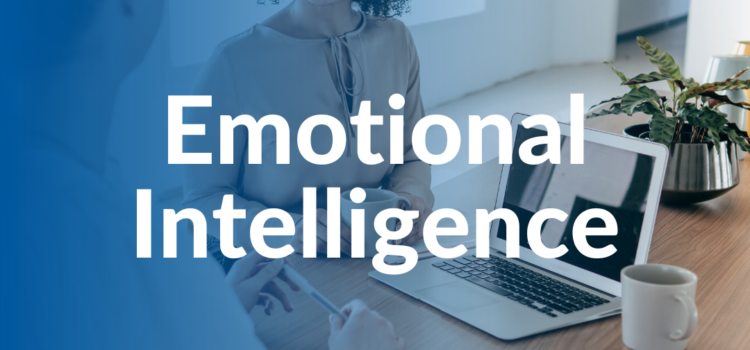 In most modern workplaces, technical skills and expertise often take centre stage. However, amidst the flurry of deadlines, projects, and meetings, there’s another critical component that can make or break a professional’s success: emotional intelligence (EI). While technical prowess might secure a job, it’s emotional intelligence that cultivates effective leadership, fosters team cohesion and drives overall workplace harmony.
In most modern workplaces, technical skills and expertise often take centre stage. However, amidst the flurry of deadlines, projects, and meetings, there’s another critical component that can make or break a professional’s success: emotional intelligence (EI). While technical prowess might secure a job, it’s emotional intelligence that cultivates effective leadership, fosters team cohesion and drives overall workplace harmony.
What is Emotional Intelligence?
Emotional Intelligence refers to the capacity to recognise, comprehend, and manage not only one’s own emotions but also those of others. According to research conducted by Travis Bradberry, an authority on emotional intelligence, only about 36% of individuals possess this crucial ability.
Emotional intelligence is anchored in four fundamental pillars:
- Self-Awareness: This involves being cognisant of your own emotions and how they affect your thoughts and behaviour.
- Social-Awareness: This encompasses the ability to understand the emotions, needs, and concerns of other people, notice emotional cues, and feel comfortable socially.
- Self-Management: This is the ability to control impulsive feelings and behaviours, manage your emotions in healthy ways, take initiative, follow through on commitments, and adapt to changing circumstances.
- Relationship Management: The ability to develop and maintain good relationships, communicate clearly, inspire and influence others, work well in a team, and manage conflict.
A study by TalentSmart, revealed a significant financial benefit associated with high emotional intelligence. On average, individuals with high emotional intelligence earn $29,000 more per year than those with lower emotional intelligence. This finding underscores the substantial impact that emotional intelligence can have on one’s professional success and financial well-being.

The Benefits of Emotional Intelligence
Leadership Effectiveness
One of the most significant benefits of emotional intelligence in the workplace is its role in leadership effectiveness. Leaders with high EI possess a keen understanding of their own strengths, weaknesses, and triggers, allowing them to respond to challenges with composure and resilience. Those in management positions who are emotionally intelligent will be more open to upward feedback, which is vital for creating a culture of transparency, continuous learning, and professional growth, ultimately enhancing leadership effectiveness and driving overall success. They’re adept at managing stress and conflict, fostering a positive work environment where employees feel valued and motivated. Moreover, emotionally intelligent leaders excel in interpersonal relationships, inspiring trust, and collaboration among team members.
Improves Communication & Performance
Emotional Intelligence enhances workplace communication by enabling individuals to accurately perceive and interpret emotions, both their own and those of their colleagues. Individuals with emotional intelligence can effectively give and receive feedback in a constructive and healthy manner. This understanding fosters clearer and more empathetic communication, improves listening skills, and aids in conflict resolution, ensuring that issues are addressed calmly and constructively. Emotionally intelligent individuals excel in self-regulation, maintaining composure under pressure, and staying focused on tasks, which leads to consistent, high-quality work output.
In terms of performance, high EI individuals contribute to a supportive and collaborative work environment through their empathy and teamwork skills. They are also more adaptable to change, navigating transitions smoothly and maintaining productivity in dynamic settings. Thus, emotional intelligence significantly boosts both individual and overall workplace performance.
Team Dynamics
Beyond leadership, emotional intelligence permeates every facet of organisational dynamics. In team settings, individuals with high EI demonstrate superior communication skills, actively listening to others’ viewpoints and fostering open dialogue. They’re attuned to subtle cues and nonverbal signals, enabling them to anticipate and address potential conflicts before they escalate. This ability to navigate interpersonal dynamics is invaluable in fostering cohesive, high-performing teams. Creating strong team dynamics are vital for organisational success, so why not check out our blog for some team building activities ideas?
Client Relations
Moreover, emotional intelligence plays a pivotal role in customer relations and client management. Professionals with high EI possess heightened empathy, enabling them to understand clients’ needs and concerns intuitively. They’re adept at building rapport and resolving conflicts diplomatically, enhancing customer satisfaction and loyalty. In industries where client relationships are paramount, such as sales and consulting, emotional intelligence can be the differentiator between success and mediocrity.
Adaptability and Resilience
Additionally, a workforce imbued with emotional intelligence is more adaptable and resilient in the face of change. In today’s rapidly evolving business landscape, the ability to navigate ambiguity and uncertainty is invaluable. Individuals with high EI embrace change as an opportunity for growth, maintaining a positive outlook and rallying their peers around a shared vision. They’re quick to adapt to new circumstances and leverage setbacks as learning experiences, driving innovation and agility within the organisation.
Career Progression
Career progression is increasingly influenced by emotional intelligence, as highlighted by a survey conducted by Lee Hecht Harrison Penna. According to the survey, a significant 75% of participants reported relying on emotional intelligence as a key factor when assessing promotions and salary increases. This underscores the growing recognition of EI as a critical component of professional development and career advancement.
Despite the acknowledged importance of emotional intelligence, the survey also revealed a notable gap in organisational practices: 68% of organisations do not have specific tools or systems in place to recognise or enhance emotional intelligence among their employees. This lack of structured support suggests a disconnect between the value placed on EI and the resources allocated for its development.
Nevertheless, most employers agree on the vital role those soft skills, including emotional intelligence, play in fostering career advancement and overall professional achievement. As a result, individuals who demonstrate elevated levels of emotional intelligence are often better positioned for career growth and success, even in environments where formal motional intelligence development programs are lacking. Those leaders with high emotional intelligence are more likely to incorporate SMART Goals into their employee’s work, overall helping career progression.
Despite its undeniable significance, emotional intelligence is often overlooked in traditional recruitment and performance evaluations. Technical skills and qualifications may take precedence, leaving EI as an afterthought. However, forward-thinking organisations are increasingly recognising the pivotal role of emotional intelligence in fostering a healthy, productive workplace culture. From incorporating EI assessments into hiring processes to providing training and development opportunities, these companies are investing in nurturing the emotional intelligence of their employees.
In conclusion, the importance of emotional intelligence in the workplace cannot be overstated. Beyond technical expertise, it is the cornerstone of effective leadership, teamwork, and organisational success. By cultivating self-awareness, empathy, and social skills, professionals can unlock their full potential and thrive in today’s competitive business landscape.
If you want to improve your employee communication and development, it can be easily achieved with emPerform. Book a FREE demo today or contact us to discuss how you can include your EI assessments and development opportunities in performance management.
